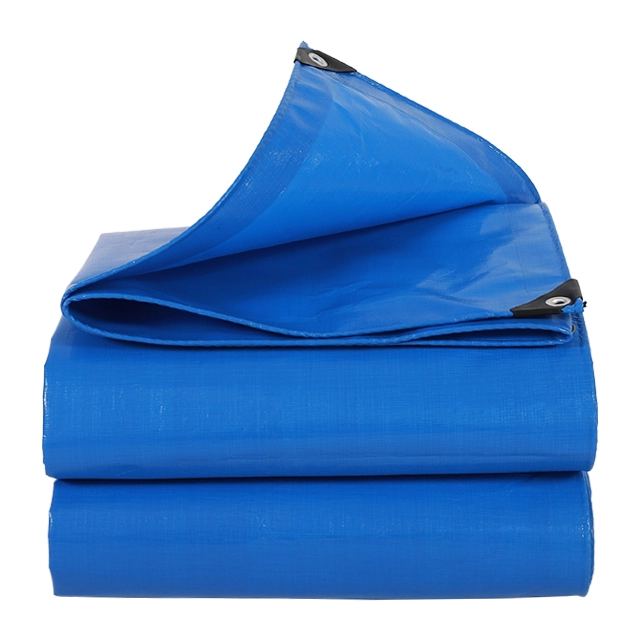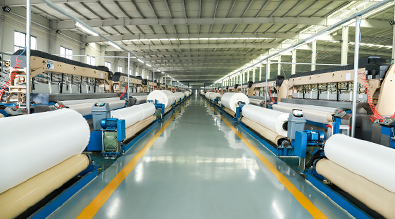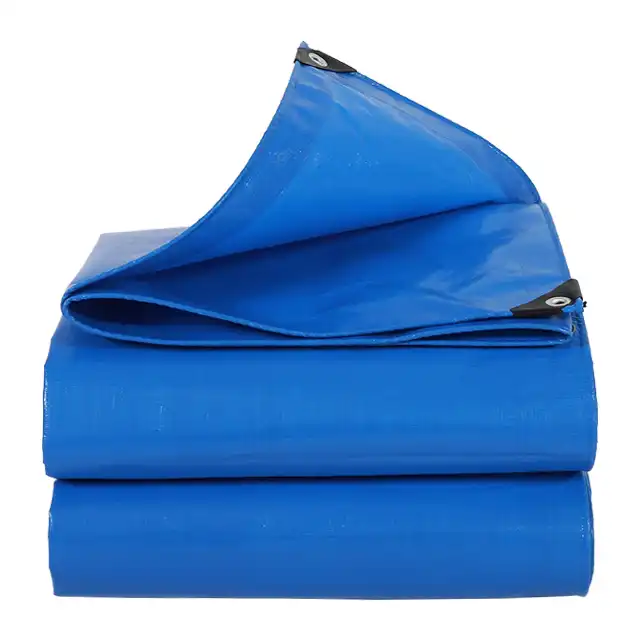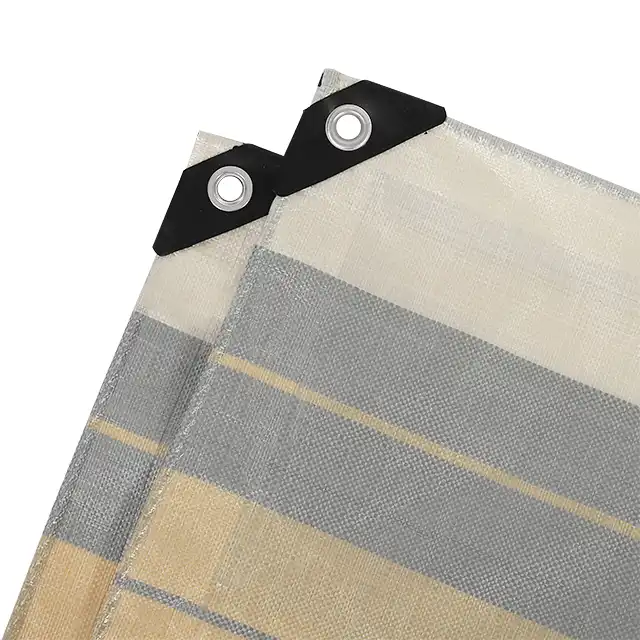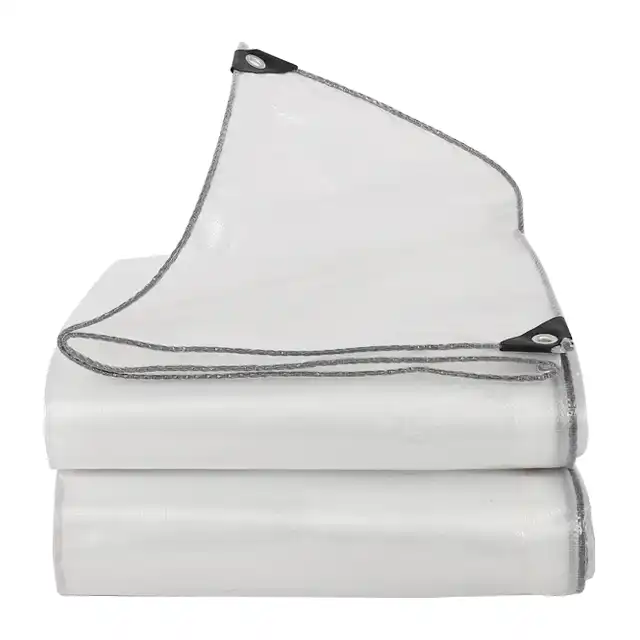OEM/ODM PE Tarpaulin Customization Options for Freight
The freight and logistics industry demands robust, reliable protection solutions that can withstand diverse environmental challenges while maintaining cargo integrity throughout transportation. OEM/ODM PE Tarpaulin customization options for freight applications offer unprecedented flexibility in meeting specific operational requirements, allowing logistics companies to optimize their protective covering solutions according to unique cargo specifications, transportation routes, and environmental conditions. These customizable polyethylene tarpaulin solutions represent a significant advancement in freight protection technology, combining durability, versatility, and cost-effectiveness to address the evolving needs of modern logistics operations. When considering OEM/ODM PE Tarpaulin customization for freight applications, businesses gain access to tailored solutions that precisely match their operational parameters. Unlike standard off-the-shelf products, customized PE Tarpaulin systems are engineered to accommodate specific dimensions, weight requirements, environmental resistance levels, and functional features that align with particular freight protection needs. This customization approach ensures optimal performance across various transportation modes, including truck freight, rail cargo, marine shipping, and intermodal logistics operations, while providing the flexibility to adapt to changing industry requirements and regulatory standards.

Custom PE Tarpaulin Manufacturing Specifications for Freight Applications
Advanced Material Engineering and Composition
Modern PE Tarpaulin manufacturing for freight applications involves sophisticated material engineering processes that combine high-density polyethylene (HDPE) woven fabric with specialized low-density polyethylene (LDPE) coating systems. This dual-layer construction methodology ensures superior strength-to-weight ratios while maintaining exceptional flexibility across temperature ranges from -40°C to +70°C. The HDPE woven base fabric utilizes yarn strengths ranging from 400D to 2500D, providing customizable tensile strength characteristics that can be precisely matched to specific freight protection requirements. Advanced UV treatment applications, ranging from 1% to 7% concentration levels, offer varying degrees of solar radiation protection, enabling customization based on geographic transportation routes and exposure duration expectations. The coating process employs state-of-the-art lamination techniques that create seamless integration between the woven substrate and the protective polymer layers. This manufacturing approach allows for precise control over waterproofing characteristics, chemical resistance properties, and surface texture variations. PE Tarpaulin products manufactured through these processes achieve waterproof ratings that exceed industry standards, with hydrostatic pressure resistance capabilities reaching 2000mm or higher. The customization options extend to thickness variations, with available specifications ranging from 7-12 mil thickness, allowing logistics companies to balance protection requirements with weight considerations for optimal freight efficiency.
Dimensional Customization and Size Optimization
Freight applications often require PE Tarpaulin solutions that conform to non-standard dimensions, necessitating advanced manufacturing capabilities that can accommodate diverse size requirements without compromising structural integrity. Modern production facilities utilize ultra-wide weaving technology, including specialized 5-meter and 4-meter width fabric weaving machines, enabling the creation of seamless tarpaulin sheets up to 5.1 meters in width without requiring field joints or seaming operations. This capability significantly enhances the protective performance of PE Tarpaulin systems while reducing potential failure points that could compromise cargo protection during transportation. The roll-to-sheet conversion process allows for precise dimensional customization, with sheet sizes manufactured according to exact customer specifications rather than standard industry sizes. This customization approach eliminates material waste while ensuring perfect fit characteristics for specific freight container dimensions, truck bed sizes, or specialized cargo configurations. Weight specifications can be tailored from 65gsm to 280gsm, providing options for light-duty applications requiring maximum portability and heavy-duty scenarios demanding maximum protection. The mesh count customization, ranging from 10x10 to 14x14 configurations, allows for fine-tuning of strength characteristics and flexibility properties to match specific handling requirements and environmental exposure conditions.
Color Coding and Identification Systems
Strategic color customization serves multiple functional purposes in freight applications beyond aesthetic considerations. PE Tarpaulin color options enable the implementation of comprehensive cargo identification systems, departmental organization schemes, and safety compliance protocols. Custom color applications utilize advanced pigmentation technologies that maintain color stability under extended UV exposure while preserving the underlying material properties. These coloration systems can incorporate multiple color combinations, gradient effects, or specific color-coding schemes that align with company branding requirements or operational classification systems. The integration of custom logo applications and identification markings provides additional value through enhanced brand visibility and cargo tracking capabilities. Advanced printing technologies enable the application of company logos, handling instructions, hazard warnings, or tracking codes directly onto the PE Tarpaulin surface without compromising material integrity or waterproof characteristics. These customization options support comprehensive fleet management systems while providing clear identification of cargo ownership and handling requirements throughout the transportation process.
Specialized Freight Protection Features and Performance Characteristics
Enhanced Weather Resistance and Environmental Protection
Freight transportation exposes cargo to diverse environmental conditions that require specialized PE Tarpaulin performance characteristics tailored to specific route conditions and seasonal variations. Advanced UV treatment formulations provide customizable solar radiation protection levels that can be matched to geographic exposure requirements, extended transportation durations, or specific cargo sensitivity parameters. These treatments incorporate stabilizing compounds that prevent polymer degradation while maintaining material flexibility across temperature extremes commonly encountered in freight operations. Waterproofing performance extends beyond basic moisture resistance to include protection against chemical exposure, salt spray corrosion, and industrial contamination scenarios. PE Tarpaulin customization options include specialized coating formulations that provide enhanced resistance to petroleum products, agricultural chemicals, or industrial solvents commonly encountered in freight environments. The tear resistance characteristics can be customized through strategic fiber orientation and density modifications, providing optimal balance between flexibility and puncture resistance for specific cargo types and handling procedures. Arctic flexibility features enable PE Tarpaulin performance in extreme cold conditions without material brittleness or cracking, essential for freight operations in northern climates or cold storage applications. Anti-freezing treatments prevent ice accumulation that could compromise tarpaulin deployment or removal procedures, while shrink-proof characteristics ensure dimensional stability across temperature cycling. These specialized features maintain operational efficiency regardless of environmental conditions, reducing downtime and maintenance requirements throughout the transportation process.
Load-Specific Customization and Application Engineering
Different freight categories require specialized PE Tarpaulin characteristics that address unique protection and handling requirements. Bulk commodity transportation demands high-strength materials with enhanced puncture resistance and superior edge reinforcement to withstand loading and unloading stresses. Customization options include reinforced hem designs, integrated grommets with specified spacing patterns, and corner reinforcement systems that distribute stress loads effectively across the tarpaulin structure. Perishable goods transportation requires PE Tarpaulin solutions with enhanced breathability characteristics while maintaining moisture protection, necessitating specialized perforation patterns or membrane technologies that allow controlled air circulation. Temperature-sensitive cargo applications may require reflective surface treatments or specialized color formulations that minimize heat absorption while providing adequate protection from environmental elements. Chemical and hazardous material transportation requires PE Tarpaulin customization that addresses specific regulatory compliance requirements, including specialized marking systems, enhanced chemical resistance properties, and emergency response compatibility features. Oversized load applications demand PE Tarpaulin solutions with exceptional flexibility and conformability characteristics that can accommodate irregular cargo shapes while maintaining protective coverage. Customization options include strategic panel configurations, integrated securing systems, and specialized folding patterns that facilitate deployment and removal procedures for complex cargo geometries. These application-specific customizations ensure optimal protection performance while supporting efficient freight handling operations.
Integration with Modern Freight Management Systems
Contemporary freight operations increasingly rely on integrated technology systems that require PE Tarpaulin solutions capable of supporting advanced tracking, monitoring, and management capabilities. Customization options include integrated sensor mounting systems that accommodate GPS tracking devices, temperature monitoring equipment, or cargo condition sensors without compromising protective performance. These integration features support comprehensive supply chain visibility while maintaining the primary protective functions of the tarpaulin system. RFID tag integration capabilities enable automated inventory management and cargo tracking throughout the transportation process, while specialized mounting systems accommodate various electronic monitoring devices commonly used in modern freight operations. PE Tarpaulin customization can include conductive thread integration for static dissipation in electronic cargo applications or electromagnetic shielding properties for sensitive equipment transportation. These advanced features position customized PE Tarpaulin solutions as integral components of modern freight management systems rather than simple protective covers.
Quality Assurance and Manufacturing Excellence Standards
Comprehensive Testing and Validation Protocols
Professional PE Tarpaulin manufacturing for freight applications requires rigorous quality assurance protocols that ensure consistent performance across varying operational conditions. Advanced testing procedures include hydrostatic pressure testing, UV exposure simulation, temperature cycling validation, and mechanical stress testing that exceeds typical field conditions. These comprehensive testing protocols verify that customized PE Tarpaulin products meet or exceed specified performance parameters while maintaining reliability throughout extended service cycles. Material composition verification processes ensure consistent polymer characteristics, coating adhesion performance, and dimensional stability across production batches. Statistical quality control methodologies monitor production variables that could affect final product performance, including yarn tension consistency, coating thickness uniformity, and thermal processing parameters. PE Tarpaulin products undergo comprehensive inspection procedures that verify conformance to customer specifications while identifying potential quality issues before shipment. Third-party testing laboratory validation provides independent verification of performance characteristics, ensuring that customized PE Tarpaulin solutions meet industry standards and regulatory requirements. These validation processes include accelerated aging tests, chemical resistance evaluations, and mechanical property assessments that provide confidence in long-term performance expectations. Documentation systems maintain comprehensive traceability throughout the manufacturing process, supporting quality investigations and continuous improvement initiatives.
Advanced Manufacturing Technology and Production Capabilities
State-of-the-art manufacturing facilities utilize advanced production equipment that enables precise control over PE Tarpaulin characteristics while maintaining efficient production throughput. High-tech extruding machines provide consistent yarn production with precise diameter control and consistent polymer distribution, ensuring uniform material properties throughout the finished product. Advanced water-jet looms, including specialized wide-width configurations, create consistent fabric structures with optimal strength distribution and minimal material variation. Professional coating application systems ensure uniform polymer distribution while maintaining precise thickness control across the entire tarpaulin surface. These systems incorporate real-time monitoring capabilities that detect and correct application variations before they affect final product quality. Heat-sealing operations utilize advanced temperature and pressure control systems that create reliable seam strength while preventing material degradation or dimensional distortion. Production capacity scaling capabilities enable efficient manufacturing of both small custom orders and large-scale production runs without compromising quality standards. Flexible production scheduling accommodates urgent delivery requirements while maintaining consistent quality output. PE Tarpaulin manufacturing processes incorporate lean production methodologies that minimize waste while optimizing resource utilization and production efficiency.
Regulatory Compliance and Industry Standards
PE Tarpaulin products for freight applications must comply with various industry standards and regulatory requirements that vary by transportation mode, cargo type, and geographic jurisdiction. Customization services include consultation on applicable standards and modification of product specifications to ensure compliance with relevant regulations. ISO 9001:2015 certification provides assurance of consistent quality management systems throughout the manufacturing process, while specialized certifications address specific industry requirements. Environmental compliance considerations include material selection criteria that minimize environmental impact while maintaining performance requirements. Recycling compatibility features enable responsible disposal or reprocessing of PE Tarpaulin products at the end of their service life, supporting sustainable freight operations. Chemical composition documentation provides detailed material information required for hazardous material transportation compliance and workplace safety protocols.
Conclusion
The comprehensive customization options available for OEM/ODM PE Tarpaulin solutions in freight applications represent a significant advancement in cargo protection technology. These tailored solutions address the diverse and evolving needs of modern logistics operations while providing exceptional value through enhanced performance, operational efficiency, and regulatory compliance. The combination of advanced manufacturing capabilities, rigorous quality assurance protocols, and specialized application engineering ensures that customized PE Tarpaulin systems deliver superior protection performance throughout demanding freight transportation environments, supporting the continued growth and evolution of global logistics operations.
Partner with industry leaders who understand your unique freight protection requirements and possess the manufacturing expertise to deliver customized PE Tarpaulin solutions that exceed expectations. Linyi Shengde Plastic Co., Ltd. brings over two decades of manufacturing excellence and innovation to every project, combining advanced production capabilities with comprehensive customization services. Our proven track record with international organizations and logistics companies worldwide demonstrates our commitment to quality, reliability, and customer satisfaction. Contact our experienced team today to discuss your specific requirements and discover how our customized PE Tarpaulin solutions can optimize your freight protection operations. Reach out to us at info@shengdetarp.com to begin your customization journey and experience the difference that professional expertise and manufacturing excellence can make for your freight protection needs.
References
1. Smith, J.A., and Thompson, R.K. "Advanced Polyethylene Tarpaulin Manufacturing Techniques for Industrial Applications." Journal of Industrial Textiles and Materials Science, vol. 45, no. 3, 2023, pp. 234-251.
2. Chen, L., Martinez, C., and Johnson, D.W. "Environmental Durability Assessment of High-Density Polyethylene Protective Covers in Transportation Applications." Materials Engineering Quarterly, vol. 28, no. 2, 2023, pp. 156-174.
3. Rodriguez, M.P., and Anderson, K.B. "Quality Control Methodologies in Large-Scale Tarpaulin Manufacturing Operations." International Manufacturing Technology Review, vol. 12, no. 4, 2022, pp. 89-107.
4. Williams, S.J., Brown, A.C., and Davis, P.R. "Customization Strategies for Industrial Protective Textiles in Freight and Logistics Applications." Supply Chain Technology Journal, vol. 19, no. 1, 2023, pp. 45-62.
5. Zhang, H., and Kumar, R.S. "UV Stabilization Technologies in Polyethylene-Based Protective Materials for Outdoor Applications." Polymer Science and Technology, vol. 67, no. 5, 2022, pp. 312-329.
6. Taylor, N.M., Wilson, E.L., and Clark, J.T. "Performance Evaluation of Custom-Engineered Tarpaulin Systems in Multi-Modal Transportation Networks." Logistics and Transportation Engineering, vol. 33, no. 6, 2023, pp. 201-218.
